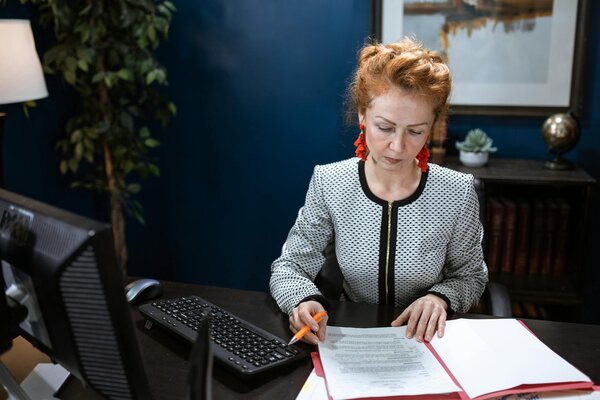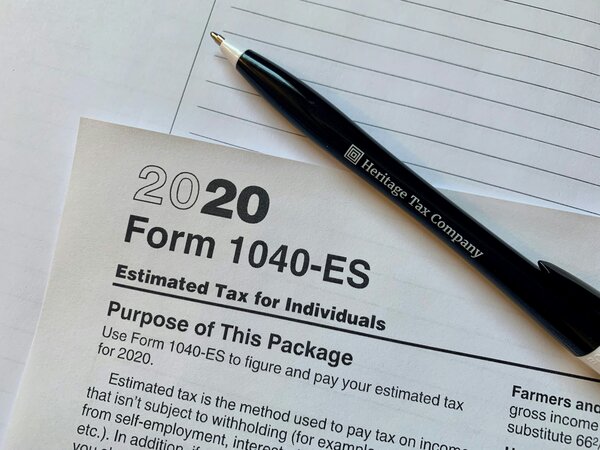Let’s Break This Down Together...
Not sure how your pension income fits into the tax system, or worried you might be paying more than you should? It’s a common concern, and the rules can feel anything but simple.
This article explains how the personal allowance works in retirement, how different types of pensions are taxed, and what happens when you have extra income from savings or work. We’ll also point out key allowances and reliefs that could lower your bill.
By reading through, you’ll see exactly what applies to your situation and how to keep more of your pension for yourself. Want to get started? Let’s go.
How does tax work when you're retired?
The good news is that you still get a tax-free allowance in retirement. The not-so-good news is that most pension income is taxable, including your State Pension. The State Pension is paid gross, which means you receive it before any tax is deducted, and whether you owe tax depends on your total income and allowances.
Understanding what’s taxable and what’s not can save you a lot of money. It might even be the difference between struggling and living comfortably.
Tax rules change frequently, so staying up to date is important. This became clear to me when helping my father last year, who nearly overpaid by £600 due to outdated information.
What is the personal tax allowance for pensioners?
The standard Personal Allowance for everyone, including pensioners, is £12,570 for the 2023/24 tax year. This is the amount of income you can receive before paying any income tax.
Sadly, the special age-related allowances that used to benefit pensioners were phased out several years ago. Now pensioners get the same Personal Allowance as everyone else.
Your allowance starts reducing if your income goes over £100,000. For every £2 you earn above this threshold, your Personal Allowance reduces by £1.
If you were born before 6 April 1935, you might still qualify for Married Couple’s Allowance. This can reduce your tax bill by between £364 and £941.50 per year.
Once you reach state pension age, you become eligible to claim your state pension. The state pension age determines when you can start receiving pension payments, and it can also affect how your tax is calculated.

How your State Pension affects your tax
Your State Pension counts as taxable income, but it’s paid to you without any tax deducted at source. This can cause confusion for many pensioners.
If your total income (including State Pension) is below your Personal Allowance, you won’t pay any tax. But if it’s higher, you’ll need to pay tax on the amount over the allowance.
HMRC usually collects tax on your State Pension by adjusting the tax code on your other pensions or earnings. Your employer uses this tax code to ensure the right amount of tax is deducted from your workplace or occupational pension payments.
If you only have State Pension income and it exceeds your Personal Allowance, HMRC may ask you to complete a Self Assessment tax return.
Private Pension Considerations for Pensioners
When it comes to your private pension, understanding how it’s taxed is key to making the most of your retirement income. If your total annual income, including your private pension, State Pension, and any other income, exceeds your personal allowance for the current tax year (£12,570), you’ll need to pay income tax on the amount above this threshold.
Your pension provider will usually deduct tax from your pension income before you receive it, but it’s still important to check how much tax you’re paying. If you have more than one source of pension income, or if you receive other income from savings or investments, your total annual income adds up quickly and could push you into a higher tax band.
Don’t forget to explore tax-free allowances, such as the married couple’s allowance, which could help reduce the amount of tax you pay. If you’re unsure how your private pension is taxed, or how much tax you should be paying, ask your pension provider for a breakdown or seek advice. Keeping track of all your income sources ensures you’re not paying more tax than necessary and helps you claim any allowances you’re entitled to.
Other Income Sources in Retirement
Retirement income isn’t just about your state pension or private pension. Many pensioners also receive income from savings, investments, rental property, or even part-time work. All these sources of income are important when it comes to working out how much income tax you need to pay.
It’s essential to report all your income to HMRC to make sure you’re paying the right amount of tax. For example, interest from savings accounts or dividends from investments may be eligible for tax-free allowances, such as the Personal Savings Allowance or Dividend Allowance.
If you don’t report all your income, you could end up owing extra tax or facing penalties. Keep good records of your income from all sources, and if you’re unsure about what needs to be declared, ask HMRC or a tax adviser for guidance.

Managing Your Pension Pots
If you have several pension pots from different jobs or providers, managing them effectively can make a big difference to your retirement income and tax situation. Consolidating your pension pots into one can simplify your finances and may help you pay the right amount of tax, as it’s easier to keep track of your total pension income.
Before making any decisions, consider seeking advice from a financial adviser who can help you create a tax-efficient retirement plan. They’ll look at your pension income, other income sources, and available allowances to ensure you’re making the most of your money and not paying more tax than necessary.
By reviewing your pension pots regularly and getting professional advice, you can make informed choices about when and how to access your pension income. This helps you stay in control of your finances and enjoy a comfortable retirement.
Tax relief options in retirement
You can still get tax relief on pension contributions even after you’ve retired. This applies up to £2,880 per year, which becomes £3,600 with tax relief added.
Gift Aid donations extend your basic rate tax band, which could be useful if you’re close to the higher rate threshold. This is often overlooked by pensioners.
Some medical expenses and care costs might qualify for tax relief. This is particularly true if you’re paying for care in a nursing home due to disability.
Don’t forget to claim allowable expenses if you’re still doing some work in retirement. Even small amounts of tax relief add up over the course of a year.
However, keep in mind that inflation can erode the real value of your pension income and tax relief, which may lead to higher government revenue from pension taxation over time.

Final Thoughts
Managing your personal tax allowance as a pensioner isn't always straightforward. Getting it right, however, can save you significant money each year.
Keep an eye on the annual Budget announcements for changes to allowances and tax rates. What applies today might change in the next tax year.
If you're unsure about your tax position, don't hesitate to contact HMRC directly or seek professional advice. It's better to ask than to pay too much tax.
Simplifying Personal Tax Allowance for Pensioners
We know that tax shouldn’t be a headache during your retirement years when you should be enjoying life. That’s why PIE also offers tailored guidance for pensioners on how different pension withdrawals could affect your tax bill.
We’re building tools with retirees in mind, making complex pension tax rules easier to understand and manage. Curious to see how PIE can support you with pension tax planning? Get in touch with us today.
Quick and Easy Guide to Add Pension Contributions
Follow these steps to add pension contributions in the Pie app
Open the Pie Tax App and find the 'Quick Add' button in the middle of the navigation bar.Click 'Quick Add' in the Navigation Bar

After clicking 'Quick Add', select 'Add tax relief' from the screen to open the options menu.Select 'Add tax relief'













